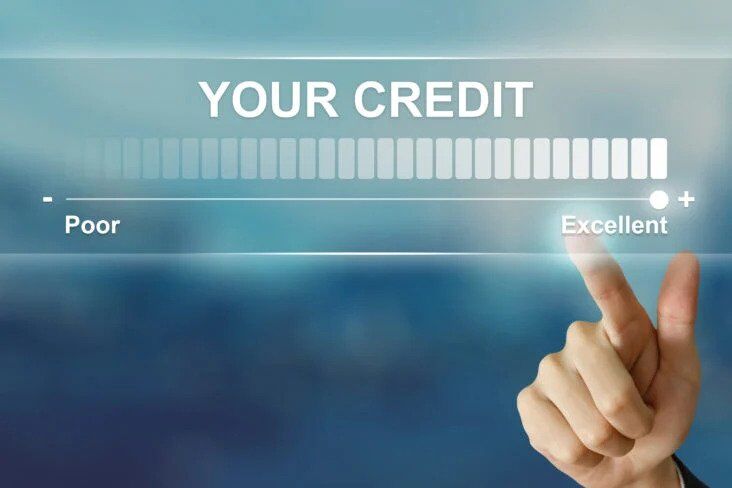Almost all cardholders find debt a nightmare, one that affects their credit score as well. Resist the temptation to use your entire credit card limit, no matter how tempting it may seem.
The way you manage your credit card debt can have both positive and negative effects on your credit score.
Credit card debt can show that you are actively using credit and making timely payments, which can improve your credit score. Your credit utilization ratio, which is the amount of credit you use compared to your credit limit, will be negatively affected if you carry high balances or max out your credit cards. It is possible to lower your credit score if you have a high credit utilization rate.
Furthermore, carrying credit card debt for an extended period may indicate that you are living beyond your means or struggling financially, which may negatively affect your credit rating.
Keeping your credit utilization ratio below 30%, paying your bills on time, and avoiding long-term credit card debt will help you maintain a healthy credit score. For those struggling with credit card debt, it is crucial to seek professional assistance to develop a plan to pay it off and improve their financial health.
What effect does pay off debt have on your credit score?
Getting rid of your credit card debt will improve your credit score. Yes, you read it correctly. Paying off your debt decreases your credit utilization rate (CUR). How would you rate your credit utilization? Debt-to-credit ratios measure how much credit you are using compared to how much is available.
Fortunately, you can raise your credit score by reducing your utilization rate. Maintain a utilization rate below 30% or even try for a single-digit utilization rate.
What is the maximum amount of credit card debt that can adversely affect your credit score?
There is no fixed number for this. Your ultimate goal should be to keep your credit utilization rate below 30%.
Due to the fact that this is a total or “aggregate utilization” that’s measured by your credit score, getting a new card to spread your debt across all your cards could prove to be unwise. It can affect your credit score negatively, as a new card requires lenders to verify your past repayment history, which can be viewed as a credit check, which, in a way, can influence your credit score. The increase in your credit card limit, however, may not affect it.
What is the impact of paying off credit card debt on your credit score?
While you might feel relaxed after paying off your credit card debt, it may not necessarily work in your favor. However, sometimes it can actually have quite the opposite effect, causing your credit score to dip temporarily.
You may see a drop in your credit score if you pay off an installment account before the due date, causing the account to be prematurely closed. Due to the fact that they can no longer earn interest, most lenders are not in favor of this. After all, interest is one of the major ways lenders earn money. Additionally, it reduces the number of accounts you have open, which is again looked down upon by lenders. If you pay off an installment early, your score might go down a bit.
Despite paying off your installment loan on time, your credit score can still drop. Exactly how? There is a possibility that it was just a coincidence and that something else might have caused the same. A number of factors can have an impact on your score, such as the application for a new loan or credit card.
You need not worry about a drop in your credit score because it will only last for a short period of time. When does the credit score recover?
When your credit score recovers from a dip, there is no magic time frame, but it usually takes only a few months. In the meantime, you can:
- Stay on top of your bill payments
- Get a better understanding of what lenders are looking for
- Make your credit card debt a priority
- Avoid early repayment penalties
Is settling credit card debt going to affect one’s CIBIL score?
Perhaps you figured out in your mind when you took out a loan that you would pay it back after a certain period. Unfortunately, some unavoidable circumstances prevent you from meeting your repayment commitment at the end of the month. In response, you can contact your bank or lender and they offer you the option of a One Time Settlement.
This may seem like a sign of relief to you, so you take it up right away. You realize that your CIBIL score has dropped.
Banks will report written-off loans to CIBIL when they are writing them off. CIBIL never fails to surprise you, even if you think the bank or lender has ended its relationship with the borrower. They refer to the deal as settled rather than concluding it. Terming a loan settled is considered negative credit behavior, and the borrower’s credit score is likely to suffer.
This record has been held by the CIBIL for over 7 years. During that certain period, the borrower may not be able to obtain a loan from a bank if he approaches the lender for one in the future. Borrowers’ past repayment history is taken into account by lenders before giving them a loan. Banks and lenders will not approve a loan application if the borrower has a settlement on their credit report.
Takeaway
Therefore, paying off your credit card debt alone won’t affect your credit score. The score is actually lowered by a combination of other factors.
Furthermore, you must keep in mind that paying off credit cards early does not harm accounts; however, paying off installment accounts does.
FAQs
What is the importance of paying off credit card debt?
Ans: You will probably have a higher credit score if you regularly use your credit card to make purchases but pay off the balance in full every month, as opposed to carrying a balance month-to-month. Another important factor affecting your credit score is your credit utilization ratio.
Is it true that paying off credit cards improves credit?
Ans: In spite of consistently paying off your credit card every month, if you have a high balance on the day the credit report is made, it may affect your score, even if you repay it the following day.
Is there a problem with credit card debt?
Ans: If your total balance exceeds 30% of your total credit limit, you may have too much debt. Experts usually recommend keeping credit utilization between 11% and 30%, while anything between 1% and 10% is considered good.




